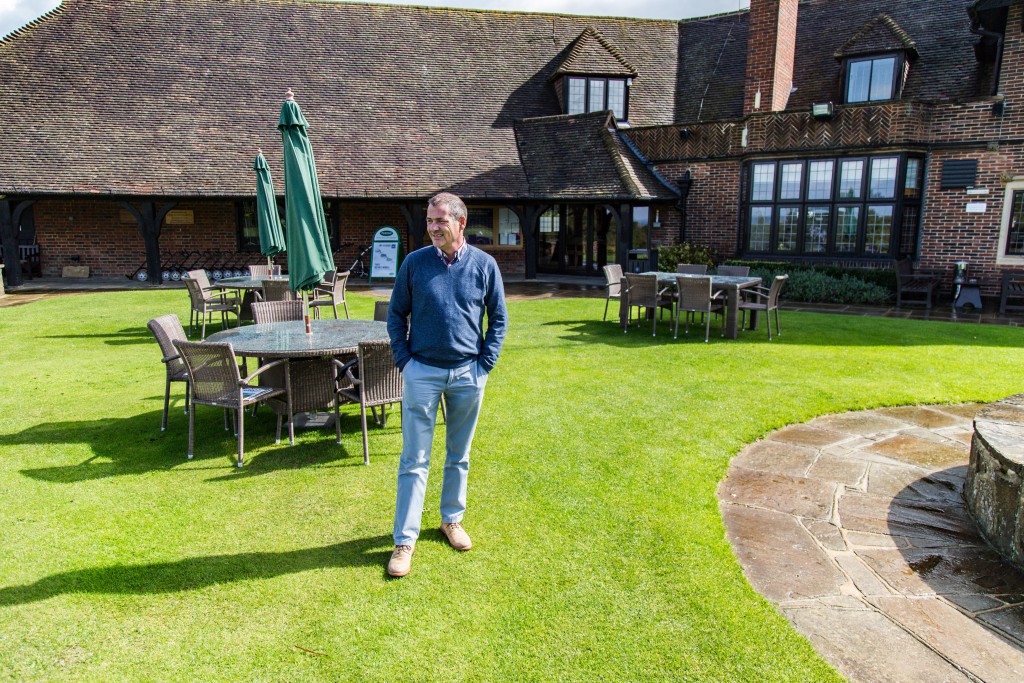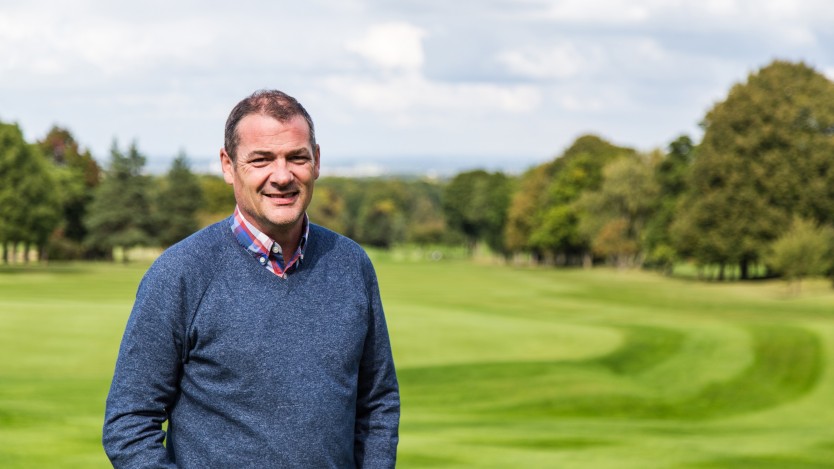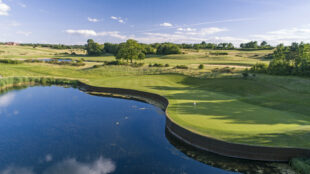Give us a hint of what you’ll be talking about at conference…
In the 15 or so years I have been covering golf full time for the BBC, a fair amount has happened and there are tales from the tour to be told. Some of them will be humorous and definitely trying to give a flavour of what it’s like to be on the road in the golfing environment, but also as a broadcaster and the various trials and tribulations that have come along that are interesting and at times quite humorous.
I think, there is such a strong relationship between the playing side of golf and the professional side of it. I think it is trying to draw those two elements together.
My feeling is golfers watch the professional game.
That’s the way that television coverage often addresses the sport. For me, on the radio, I am always talking to a wider audience. I am trying, not to sell the sport, but make the sport relevant to a wider sporting audience than just the die-hard golf fans.
I just think it’s very interesting to see where the relationship between the clubs and the professional game sits at the moment. As someone who has played the game all my life, been a golf club member for more than 40 years, I wonder whether that relationship could be much stronger. We all delight in having associations from our clubs with players who are on the tours. But how many pro shops do we go into where there’s a special offer to go to the BMW PGA Championship, or a EuroPro Tour event, or whatever it might be? That fascinates me so I will be interested to talk about that.
Also, I would like it to be an opportunity for people to ask me – having been really involved in covering the professional game and also as someone who has seen that side but has also been a golf club member for more than 40 years – what my thoughts are about the direction the game is going in.
I am a member at Cuddington, which (GCMA chief executive) Bob Williams tells me is a very historic place in the history of the organisation. I see that’s where the association was actually founded. By coincidence I am a member there. I have only been there for a couple of years. Previously I was at Hampton Court, which was known as Home Park, and I started playing in my home county of Leicestershire at Cosby. I was a member for 20 years from being a junior.

Do you get much chance to play during the season?
It’s difficult and it goes in fits and starts but, when I’m at home, I play as often as I can. In the last couple of years, I have had the opportunity to play a lot more than maybe in the decade before. I am very passionate about the notion that golf should be a family sport. I think that golf has been very poor in fostering that view of the sport. In Britain, we lag way behind the continent in treating the sport that way.
The way I look at it is I can have a game with my dad who is in his 80s, my wife and my teenage son. We can have a proper game together. It’s the only sport where that is possible. We couldn’t go for a proper bike ride together. We couldn’t play tennis, football or cricket. I think that is a calling card that golf hasn’t used as much as it should.
You rarely see entire families playing the game together… Exactly and it’s set up that you have men’s competitions, and women’s competitions and junior competitions, which is fine. But where are the other opportunities that are presented so you are more inclined to go and play as a family than in your regular swindle?
I think that the entire environment of the traditional golf club doesn’t really set itself for that and I think it is an opportunity missed. That’s not to say that the current set up is all bad. I think it is a lot better than the popular perception of golf.
I think golf clubs do a heck of a lot of good in terms of fostering camaraderie, exercise for age groups, where otherwise you are in danger of becoming a couch potato. I think there’s a heck of a lot that is very good about golf and golf club membership. But I think that there are key drop off moments in terms of golf club membership.
One is when you go away to university or college and become a student so you leave where you have been a junior member, a second area is when you start a family – because you haven’t got time to play and you’ve got extra demands on your disposable income and so golf has to go.
What is happening is that those people who have played golf are then returning to the sporting environment and buying a bike instead of golf clubs because it’s cheaper and there’s less time involved and they still ful l all their family obligations.
I think you’ve got to foster an environment where someone is not going to give up their golf club membership when they become a parent and they are actually going to be able to see it as a vehicle to spend time with their family going forward. If we could come up with a way of making that a priority then you have got more chance – much more chance – of keeping members up and attracting people to the game.
You must be away a lot during the season?
Yes, I am. It’s a constant battle to manage that. I realise I am very fortunate to do the job that I do and work in a sport that I love and be able to witness fantastic moments – whether they are in Ryder Cups, Opens or majors. I feel very honoured and very privileged.
I genuinely had that pinch me moment walking down the 18th with Jordan Spieth and Matt Kuchar at Birkdale and looking around me and saying ‘my goodness.’ It was my 16th year of doing it and I still genuinely have that feeling ‘how on earth has this ever happened?’ It does mean a lot of time away from family and that brings its own stresses and pressures. I have learned to deal with those. When I am not away, I am basically working from home and can manage family time reasonably well. It’s great that my wife plays golf. My son plays golf. We are invested in the sport and are making it work for us.
You’re a high profile correspondent in an age of social media. How do you deal with very public criticism?
I don’t subscribe to the view that you should use social media to slag people off. By and large, I won’t tweet criticism randomly. In my experience, if you approach it that way you are less likely to get abuse.
I get more criticism in terms of comments on my blog on the BBC website. At first, it jolts you a bit and then you see the figures of how many people click on the piece that I have written each day they are up. You compare that with the number of people who comment criticism and it is minuscule. If I put a view out there, I can’t expect people to all agree with me. Some people will express that in more hysterical ways than others. As for people criticising me on social media, I politely go back and argue my case.
 What are your biggest achievements as a club member?
What are your biggest achievements as a club member?
I would say reaching the final of the fourball handicap knockout, playing with my dad as a junior, back in the early 1980s. It was a fantastic summer. My dad was a very average golfer and I was an average junior.
We got all the way to the final and it was a fantastic father and son thing to do. They were great times spent together.
I think I’ve won three or four medals and, in 40 years, there have been probably been six or seven occasions when I think I’ve played really well. That still makes me come back the next week and do it again.
That still makes me want to practise and play. I got my handicap down to 5.5 last year. At this stage in my life, it shows what a great game golf is. If tennis had been my sport of choice, there’s no way at this time I could be thinking ‘I am playing the best of my life.’ I think, as a 52-year-old, that my best golf days are still ahead. I still think they are. That’s what keeps me playing. That, for me, is probably the biggest thing.
How do you feel about the state of the game?
I am optimistic. I think it has become a game played by athletes. Golf is going to benefit massively from being an Olympic sport. It will lead to global growth in the game and there’s a fantastic opportunity to be harnessed there. I think there’s a lot more dynamism about the professional tours at the moment. Keith Pelley has brought in a great many ideas that will make golf more attractive on the European Tour. There are similar thought processes going through the PGA Tour and the LPGA is very progressive as well.
That is going to be fascinating for the game in the way it will be broadcast and the opportunities are enormous – with traditional and new formats that we can’t even conceive of at the moment.
The opportunity is there for growth – real growth. But it does need golf at all levels to think of itself as a sport in competition with lots of other sports. It has to think very carefully about some of the rules and traditions of the game and whether or not they make it as attractive as it can be.
Whether we need to be a little less formal, a little less stuffy, we need to behave like other sports.
An evening with…Iain Carter opens the first evening of the 2017 GCMA Conference on Sunday, November 12. He will tell some tales from the tour, alongside Le Golf National’s Paul Armitage, who will give an insight into preparations for the 2018 Ryder Cup. To book your place, visit gcma.org.uk/ conference



